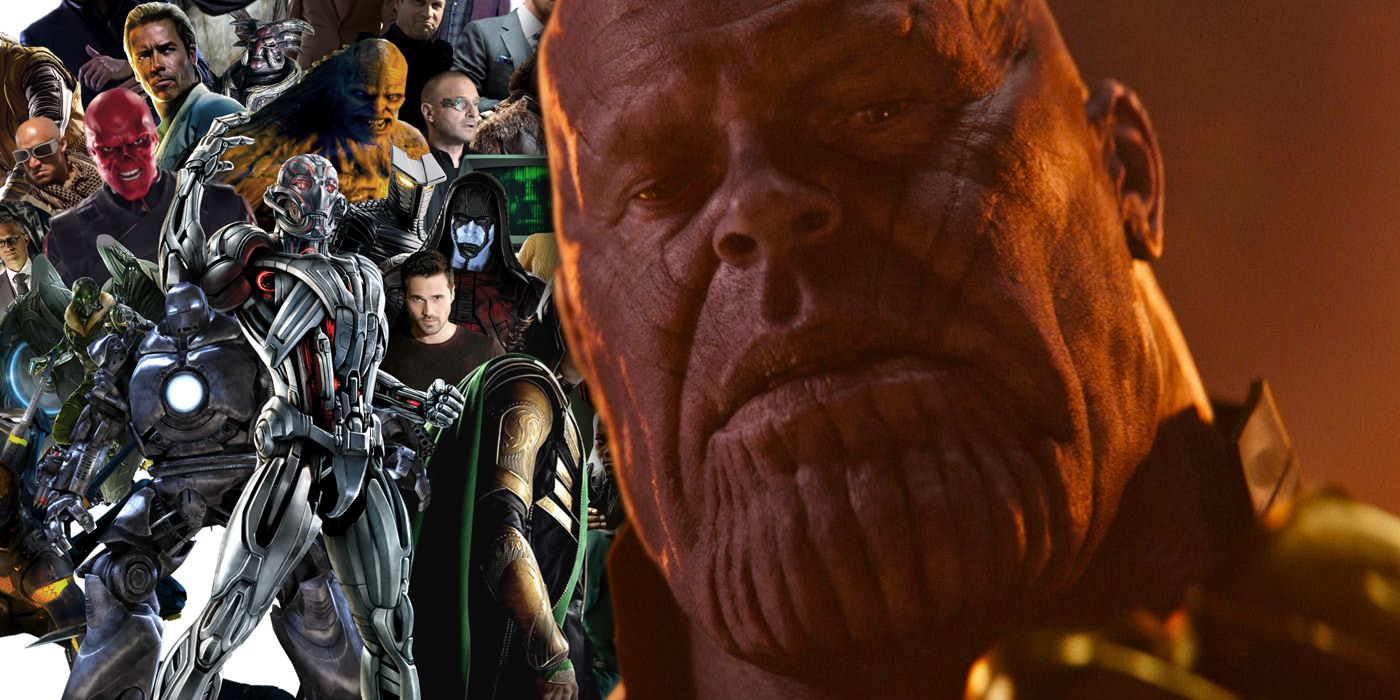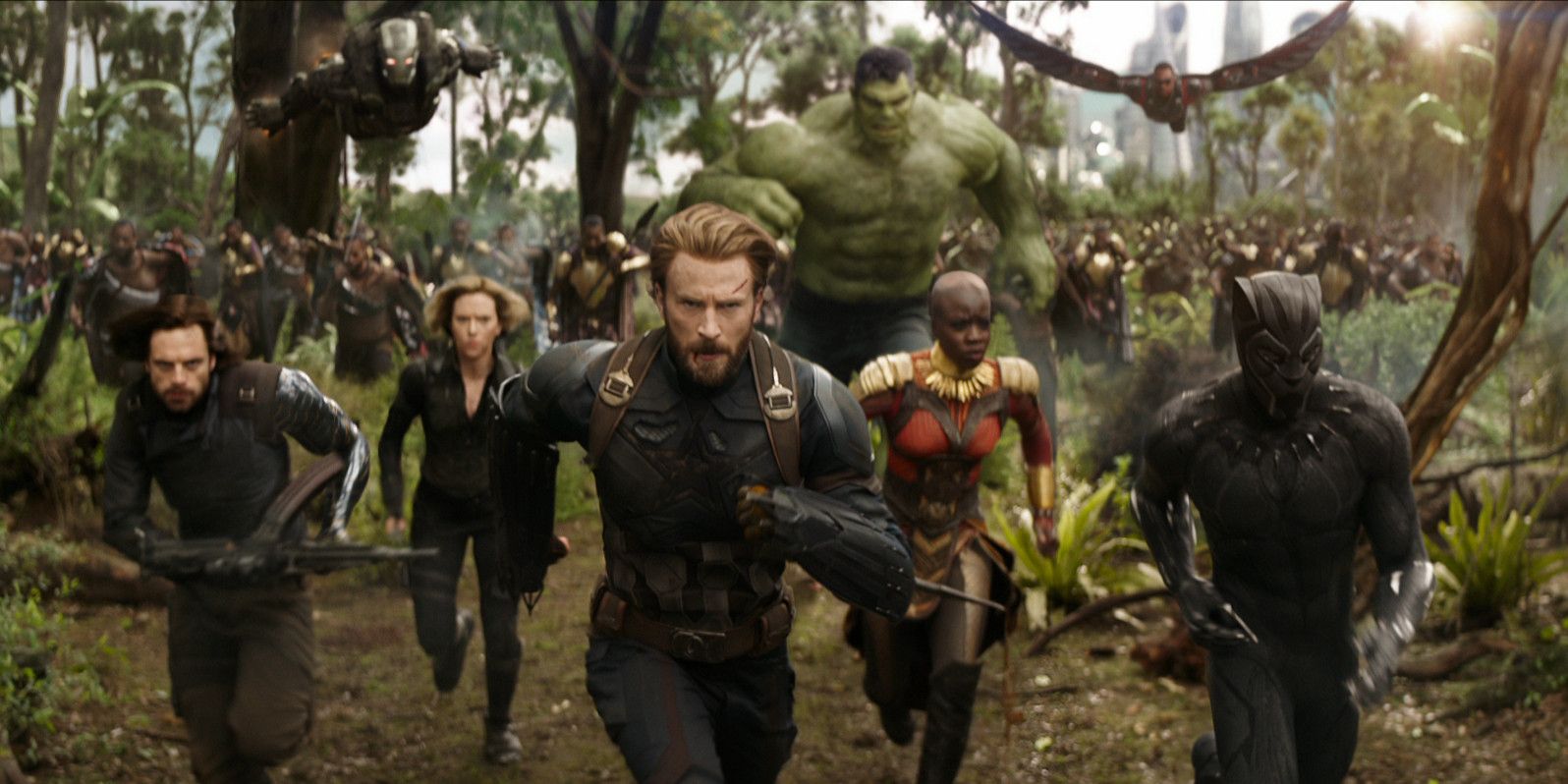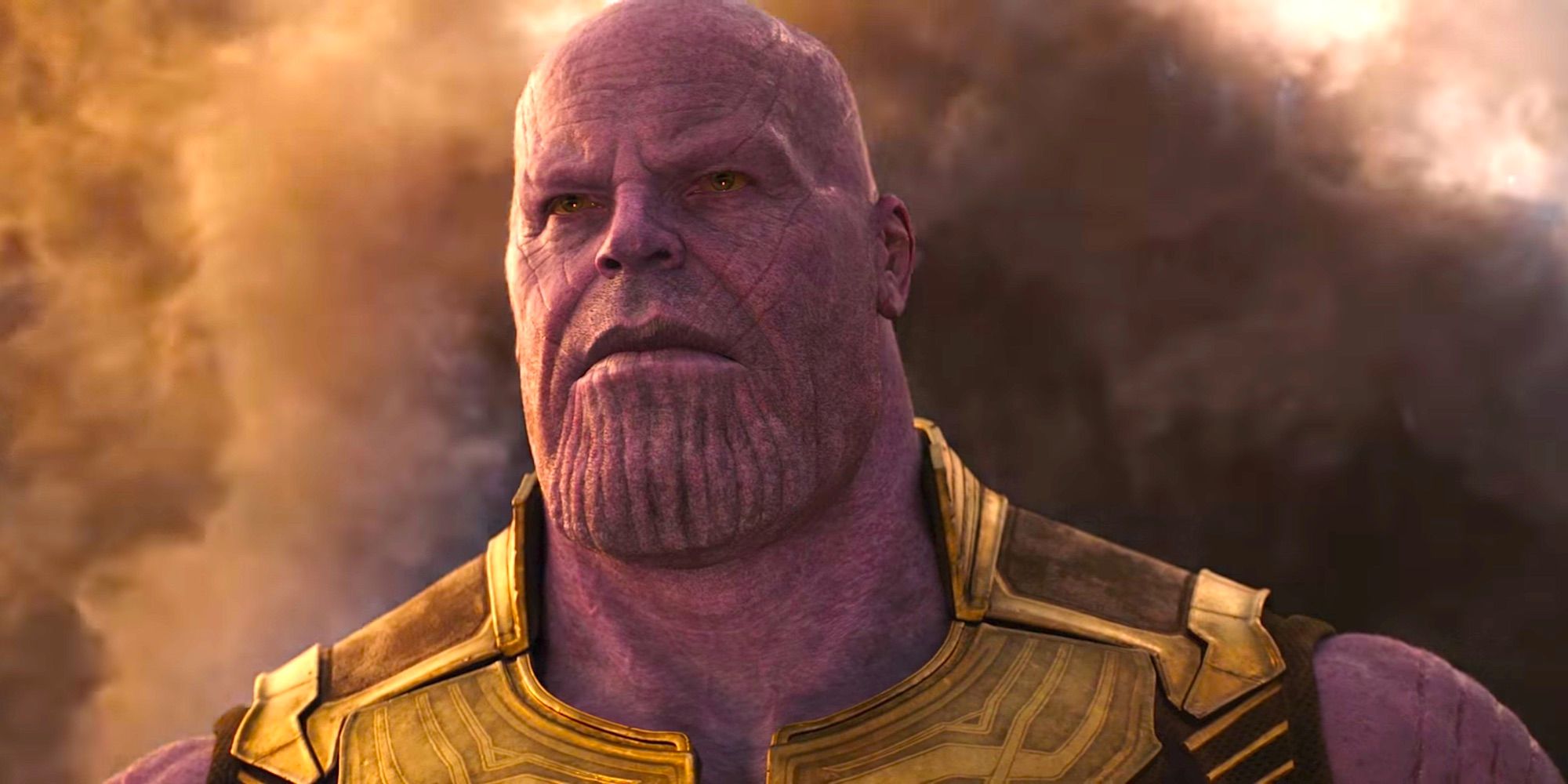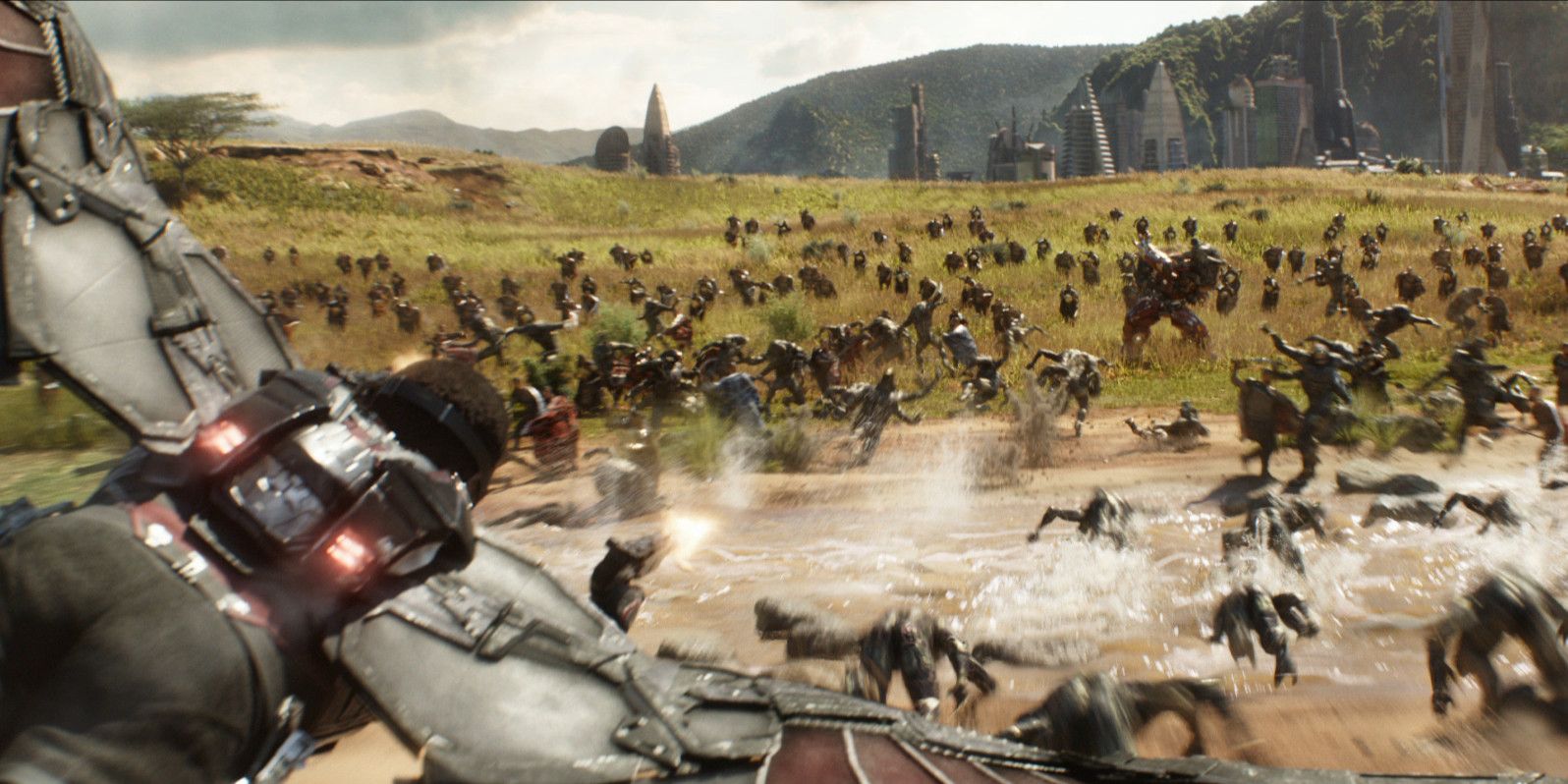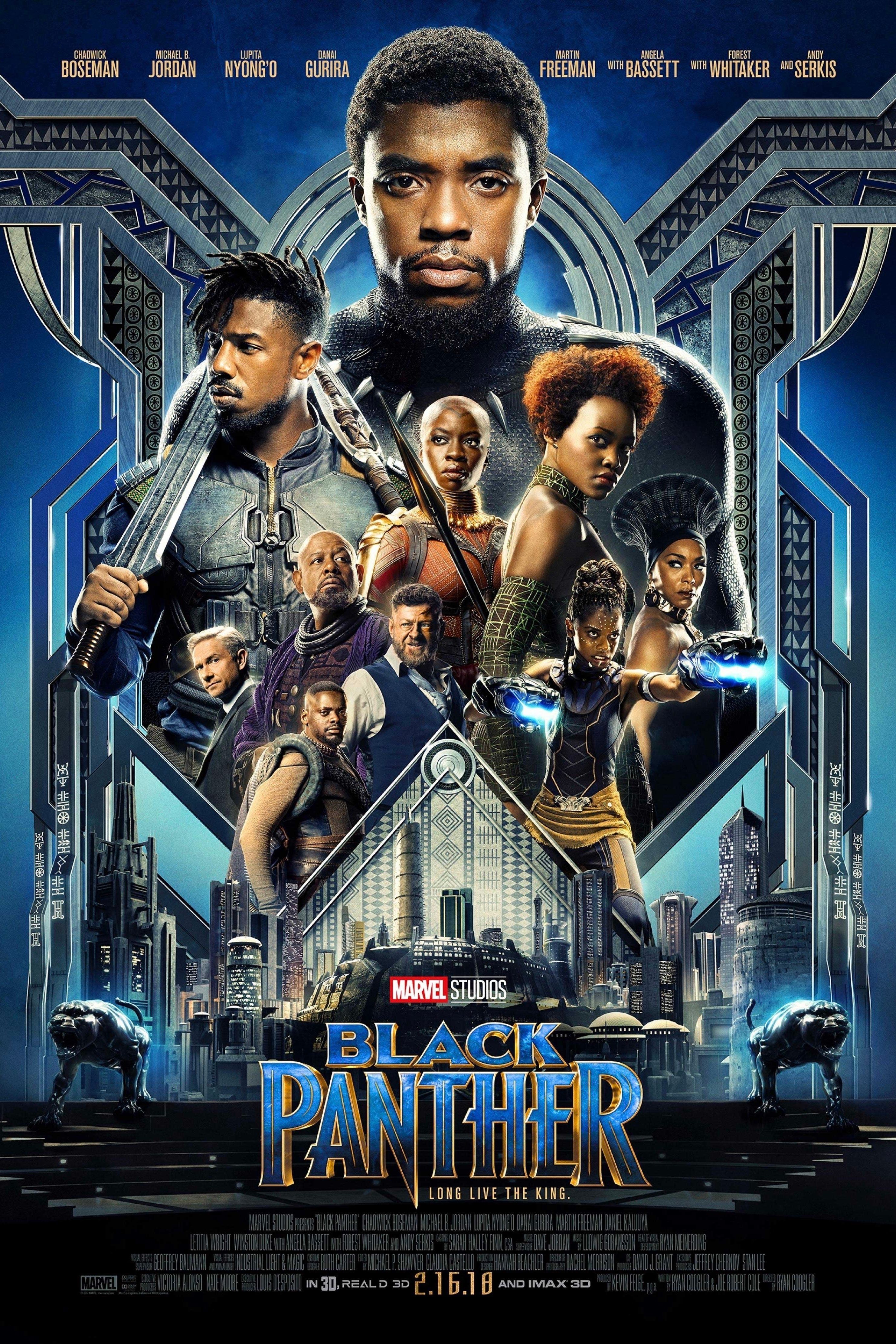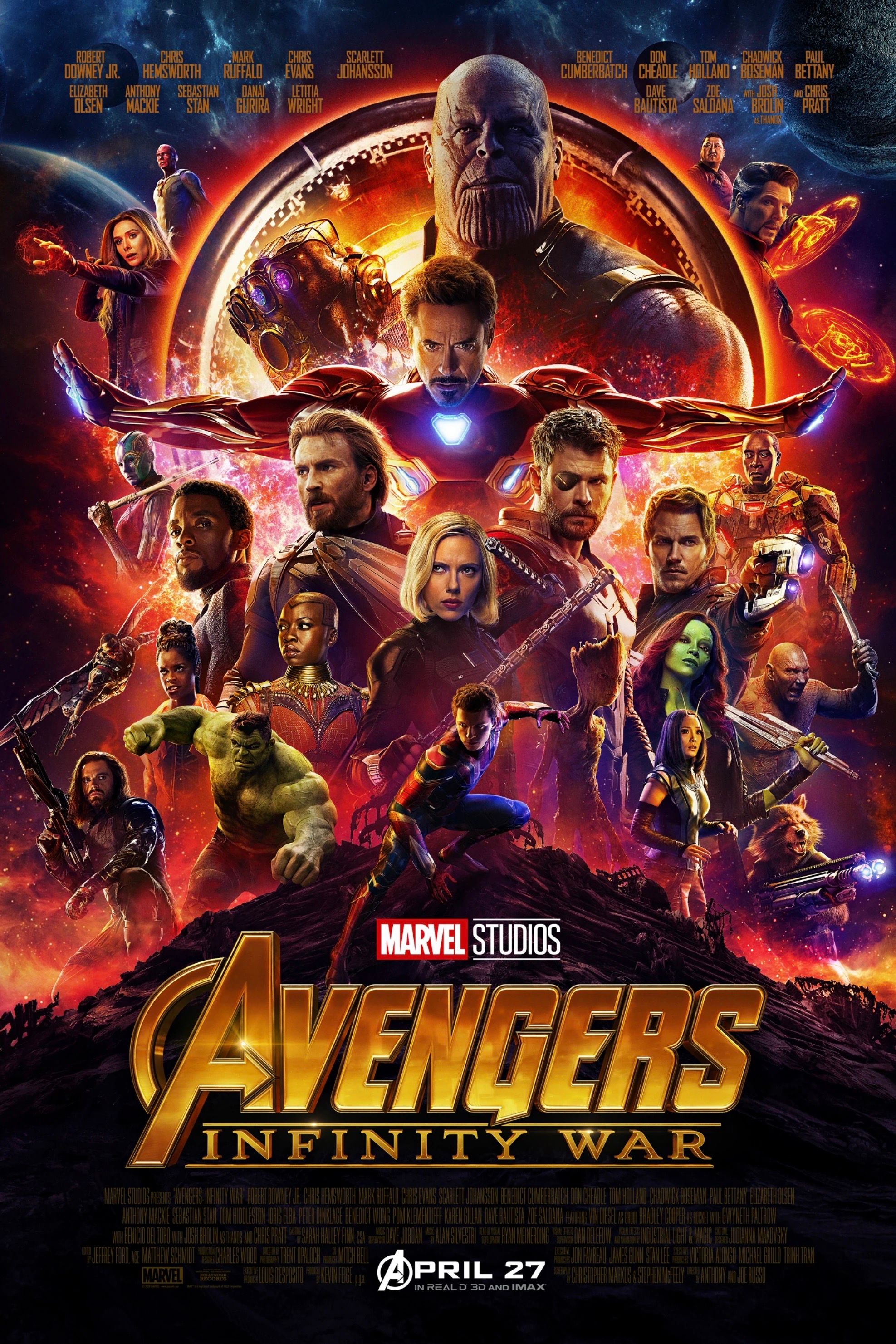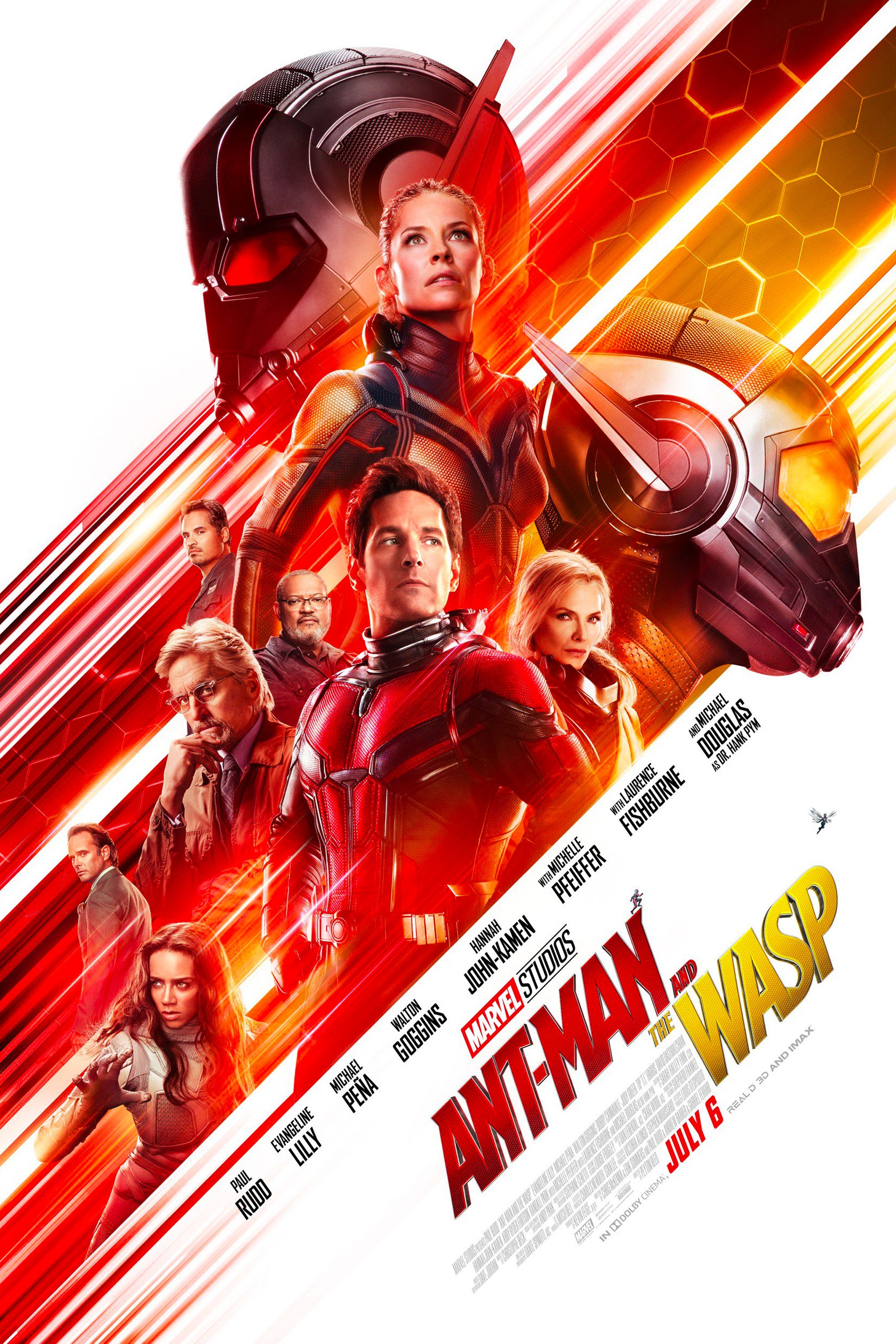In Avengers: Infinity War, the various heroes of the Marvel Cinematic Universe will finally come face-to-face with the Mad Titan Thanos - but will the villain actually live up to the hype or be just another boring antagonist? Up to this point, the MCU has had a recurring problem with villains being forgettable or otherwise without gravitas, a hurdle that must be overcome if Infinity War is to succeed.It's been a long path to the Avengers squaring off with Thanos. After he was teased in the post-credits scene for 2012's The Avengers, we've only seen him onscreen twice since once in Guardians of the Galaxy and again in the mid-credits for Avengers: Age of Ultron. The powers that be really doubled-down on the incremental nature of the MCU's storytelling, letting an entertaining, varied slate of productions do the talking while slowly building towards a big, ever-encroaching climax.
Related: Avengers Infinity War: Trailer Breakdown & Secrets
That's meant we've become attached to a diverse set of protagonists from a number of fascinating settings as tension gradually mounted in the background. The paths of the Avengers, Guardians of the Galaxy and Thanos converging has been an inevitability for over a dozen movies now, yet we know very little about the purple wrongdoer other than he has a reputation for cruelty and fighting him will be the greatest challenge our heroes have yet faced.
Marvel (And DC) Have A Major Villain Problem That's Getting Worse (This Page)
While letting the threat of Thanos approach at a leisurely pace has done wonders for the hype of the third Avengers, the troubling trend for Marvel letting their movie villains fall by the wayside has also created an air of apprehension. Wrongdoers that leave an impression have been in the minority and even at that, most are killed off in the same film they're introduced, so there's no opportunity for actual character progression. But despite being a genuine problem of the MCU, it's a criticism that often seems swept under the rug with the continuous celebration of Marvel Studios' movies.
And this is especially worth discussing now in the light of the lackluster returns for DC's Justice League. One of the bigger bones picked with that superhero team-up is how lame Steppenwolf came across as a central villain. The minion of Darkseid is about as humdrum as it's possible to be in a modern day blockbuster, the gray hue of his skin matching our collective ambivalence to whatever he was threatening. To be fair, for all the (rightful) critique aimed at Steppenwolf and his vampiric army, he's no less blandly forgettable than Ronan the Accuser from Guardians of the Galaxy or Malekith from Thor: The Dark World, yet Marvel have never courted anywhere near the same level of backlash for similarly poor design choices.
There are reasons for this, the main one being the solid foundation the MCU has built itself on. There's an obvious and coherent structure in the Marvel movies that's kept them on an upward trajectory since Phase 1. Whether it be a heist movie or a fantasy about wizards and alternate dimensions, fans know what to expect. And even if the plotting or the central conflict between hero and villain is a touch weak, the standard of effects and performances is generally good and even if everything else fails, there's the strong characters and overarching relevance to deeper Marvel canon.
Read More: Why Shared Universes Are A Good Thing
Marvel's baddies are regularly under-written and under-utilized, but their films are generally good enough that said complaint becomes minor in comparison. The DC Extended Universe hasn't established that same reliability yet. Wonder Woman is the only one of those movies to have unanimous appeal, the rest have been at best middling with a myriad of issues. It's not that Marvel's villain problem is forgiven, it's that the issue often pales with the other interesting, exciting things their movies are doing. For DC, the villains are one in a long line of other issues that plague their pictures.
That said, Thanos needs to be better served as a legitimate evil because this is the battle we've been waiting for. This is what was teased at the end of Phase 1. Marvel need to sharpen up here because the goodwill that's allowed aspects of their productions to slide has been in service of what happens with Avengers 3 and 4. He needs to be someone that bucks the trends previously set and be an irredeemable, truly daunting terror for Steve Rogers and co.
Getting Thanos Right
Really, it's all about efficiency and grandeur. The biggest strength going into Infinity War is how little we've actually seen of Thanos. The first time we laid eyes on him, he seemed unnervingly positive about having a set of superheroes to fight with on Earth. The second time it was a demonstration of his stoic belligerence toward poor Nebula, and the third was him deciding he'd œdo it himself while grabbing his Infinity Gauntlet. Each short glimpse at the hulking alien has been to further make him larger-than-life, to show that when he makes himself known, it means bad things are going to happen to anyone in his way.
Related: Avengers: Has the Infinity Gauntlet Been Used Before?
The mythologizing is similar to how the Lord of the Rings trilogy treated Sauron. Over three epic films, the Dark Lord of Mordor is only put on-screen a handful of times. His eye, a burning beacon worshiped and revered by his armies, stands over the volcanic black-land of Mordor, watching all, waiting for someone to activate his ring so he can attack. In a flashback, it's revealed he had a physical form once, and many died to bring him down. Now he's literally ethereal fire atop a massive tower, a body more befitting of the way his notoriety and influence spread. Seeing that demonic eye was treated like a privilege or a curse by the movies themselves; any time we saw it we dreaded what was going to happen to the fellowship, especially as their mission was expressly to invade Mordor itself.
Thanos coming to earth has the same weight to it. This is a bad guy who only enjoys making himself feel powerful. He punishes the weak and employs others to do his bidding because most aren't worth his time or energy. His army, the Outriders, are genetically-engineered parasite-assassins, highly efficient and ruthless. There is no reasoning with him, there is only indentured servitude or death, and now he's on humanity's doorstep. In Infinity War, meeting Thanos should be something won by first getting through his endless tirade of soldiers, something that only the foolish or the incomparably brave (or both) would attempt. We know the emphasis is on the 'War' in the title from the trailer, these battles should be an exercise in futility that makes Thanos look the arrogant, despicable tyrant and the Avengers the admirably unrelenting but ultimately human, and thus limited in their abilities, heroes.
In the teaser footage, Spider-Man and Iron Man are seen getting put down going one-on-one with the otherworldly hulk. The Russo brothers must tread lightly with how much of this is in the movie because over-exposure is a concern, especially early on. With the amount of special effects and green-screen Marvel use, their fight scenes have developed a cinematographic sameness in the movement and action beats. Thanos will look unremarkable the more we see of him, especially when fighting with characters we've seen go through the motions several times before. These tussles being brief, savage put-downs would set a standard of appropriation and domination Thanos is here and until further notice, he's in charge.
Consider Darth Vader in the original Star Wars. His introduction is troops blasting through a smaller vessel as he menacingly follows through to find Princess Leia. Later he telepathically chokes a man for challenging him. Vader himself isn't in the film all that much but when he is, control of the scene is always in his hands and everything he does is decisive and in his favor. In Guardians of the Galaxy, Thanos is shown to be just as commanding. Ronan the Accuser grovels at his feet and Nebula, despite being ever-reminded that she's the inferior daughter, remains dutiful to his every whim. Serving him is a privilege and a curse all at once.
Related: How Thor Meets Guardians of the Galaxy in Avengers: Infinity War
Each of his scenes should be as striking as that tease, leaving the audience more afraid and more unsure of how anyone will defeat him. As this is the climax of the MCU and many contracts are ending, let Thanos be the epicenter of the uncertainty. Really put the power of anticipation on him, so when he's visible, it's all about what he's going to do. Make his presence unbalance the scales and push any situation into disarray. This is the fate of the entire cinematic universe we're talking about, survivors should be lucky to get out alive.
Someone's going to die in Infinity War, that's not a bold prediction, but who that is and when is of the utmost importance to how we view the wannabe-God as an antagonist. Too early and viewers can become apathetic, but at the right time he could be reviled. A fan-favorite like Loki, who we can assume gives the evildoer the Tesseract, getting double-crossed and murdered would be massive. Imagine if Thanos only appears on-screen a half-dozen times or less and one of them is to kill Loki without a second thought. Suddenly Marvel have made a villain that actually kills - and not just killed, but ended the life of one of the big crowd-pleasers. Audiences will resent him. They'll hate him, they'll cheer when Captain America beats his teeth out. And Marvel will finally have created a monster that will go down in the right kind of infamy.
Next: The Order Thanos Collects The Stones In Avengers: Infinity War Revealed

